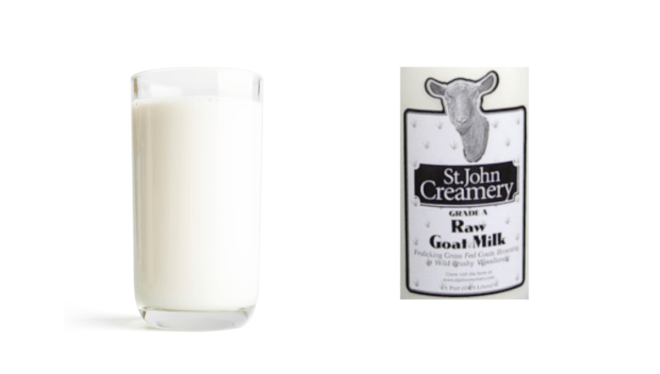
The recall was initiated after routine sampling conducted by the Washington State Department of Agriculture (WSDA) revealed the presence of Listeria monocytogenes in retail raw goat milk dated 100321 — Oct. 3.
There is concern that consumers may have unused portions of the raw milk in their homes because the best-by dates run through Oct. 10. Anyone who has consumed the raw milk or anyone they served it to should monitor themselves for signs of Listeria infection for the next 70 days.
The whole, raw goat milk, which was bottled in half-gallon and one-pint containers, was sold at the on-farm store, directly to private customers via drop groups, and at retail stores in Western Washington.
Recalled products:
The recalled product is bottled in half-gallon and one-pint containers.
Use/Freeze/Sell by Date:
Best by dates 10/03/21 – 10/11/21
As of the posting of this recall, there are no known illnesses associated with the recalled product.
Consumers who have purchased the recalled product are urged not to drink it and return it to the place of purchase for a full refund.
Retail raw milk is legal to sell and buy in Washington State, but the potential health risks are serious, according to state and federal public health officials. Consumers should read the warning label on the retail raw milk container carefully and ask their retailer to verify the milk was produced and processed by a WSDA-licensed operation.
About Listeria infections
Food contaminated with Listeria monocytogenes may not look or smell spoiled but can still cause serious and sometimes life-threatening infections. Anyone who has consumed any recalled product and developed symptoms of Listeria infection should seek medical treatment and tell their doctors about the possible Listeria exposure. Specific tests are required to diagnose the infections, which can mimic other illnesses.
Also, anyone who has consumed any of the recalled products should monitor themselves for the food poisoning symptoms during the coming weeks because it can take up to 70 days after exposure to Listeria for symptoms of listeriosis to develop.
Symptoms of Listeria infection can include vomiting, nausea, persistent fever, muscle aches, severe headache, and neck stiffness. Specific laboratory tests are required to diagnose Listeria infections, which can mimic other illnesses.
Pregnant women, the elderly, young children, and people such as cancer patients who have weakened immune systems are particularly at risk of serious illnesses, life-threatening infections, and other complications. Although infected pregnant women may experience only mild, flu-like symptoms, their infections can lead to premature delivery, infection of the newborn, or even stillbirth.

























